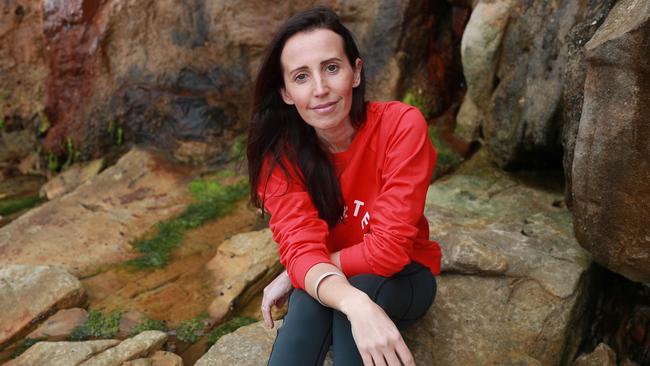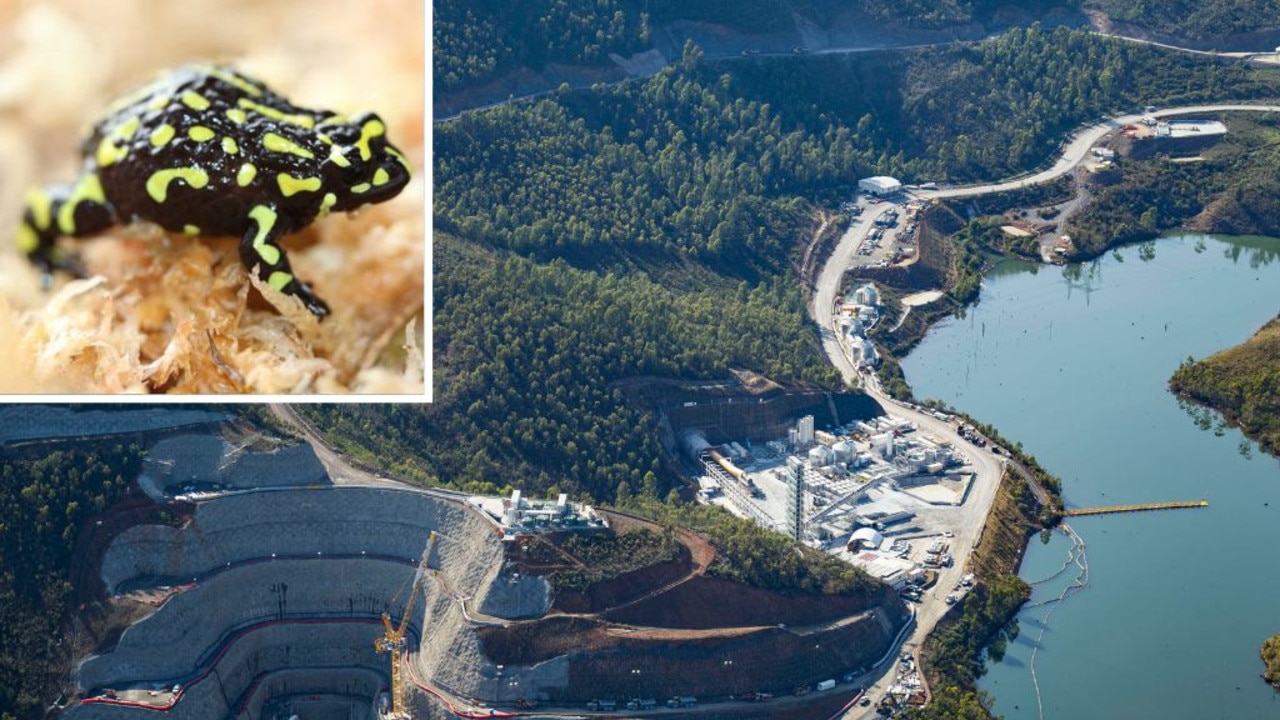Coronavirus: Young face life of disability
Amy Goller continues to suffer debilitating effects from COVID-19 more than four months after her diagnosis. She’s not alone.

The COVID-19 pandemic could leave Australia with a long-term epidemic of people suffering from heart disease, lung scarring, diabetes and other chronic conditions as warnings grow that young people who contract a severe illness may face a life of disability.
Scientists looking for a “signature” of COVID-19 in infected cases say it could reveal that even patients who have recovered develop disease risks they didn’t have before contracting the virus.
The research suggests that abnormalities detected in blood samples of infected patients are linked to diabetes, liver dysfunction, abnormal levels of cholesterol and higher risk of coronary heart disease.
The research, to be published shortly by the Australian National Phenome Centre, Addenbrookes Hospital in Cambridge in the UK and other agencies, may flag that COVID-19 infections could trigger a massive increase in the healthcare burden across the planet.
Australia’s acting chief medical officer, Paul Kelly, warned young people to take note that COVID-19 was “not just a disease of old people” and that evidence of long-term disability in sufferers who experienced a severe illness was becoming clearer.
“We don’t know yet whether these long-term effects are permanent, but certainly there is evidence of long-term issues with lung damage and damage of the blood vessels around the body including the heart,” Professor Kelly said.
“This can be a very severe illness. Don’t take it lightly.”
Murdoch University Professor Jeremy Nicholson, head of ANPC, said the centre’s research aimed to find a “metabolic signature” for the virus that would show what the abnormal biochemical effects of being COVID- positive are on a patient.
“These abnormalities would be expected to yield highly characteristic metabolic signatures that we can identify,” he said.
Samples from a cohort of COVID-infected frontline medical staff in Cambridge have been flown to Perth and are being assessed alongside West Australian samples. All WA recovered patients have been asked to provide blood samples.
The emerging evidence of greater disease risk after COVID-19 infection has major implications for future generations, as the proportion of infected cases aged 15 to 24 has risen three-fold in five months, according to the World Health Organisation.
In Australia, young people aged 20 to 29 are the most likely age group to contract the virus.
Australian Medical Association vice-president Chris Moy said doctors were alarmed at the evidence emerging of long-term damage on the body’s organs.
“We are very worried about the long-term effects of this coronavirus,” he said. “The great fear in this is the unknown nature of this condition, which we haven’t really seen before. This is something that we could pay for later.”
Professor Nicholson said recent reports indicated diabetes and liver injury were common but previously overlooked side-effects of the virus infection.
Amy Goller is one patient who continues to suffer debilitating effects from COVID-19 more than four months after her diagnosis. The 39-year-old mother of two is afraid she may suffer long-term disability from the virus.
Ms Goller, 39, spent weeks separated from her family as she battled the illness. “I had difficulty breathing, I had chest pain, an extremely high heart rate, an earache, hair loss. I couldn’t smell or taste anything, my cognitive function was affected,” Ms Goller said.
“For the first eight to 12 weeks I spent many days lying on the floor struggling to breathe. The symptoms went on and on.”
Gail Matthews, an associate professor and head of infectious diseases at St Vincent’s Hospital in Sydney, said symptoms were still being experienced by about 20 to 30 per cent of patients who contracted the virus during the first wave in March and April.
The most common symptoms reported by these COVID-19 “long-haulers” were fatigue and shortness of breath. Neurocognitive changes were also being reported, including “brain fog” and anxiety, she said.
David Darley, a respiratory specialist from St Vincent’s, said: “In terms of the health effects, I think people who have had severe COVID are probably going to be disabled.”
Sean Lal, a cardiologist at the Royal Prince Alfred Hospital, said COVID-19 could affect the heart not only in people with pre-existing coronary disease but also in young, healthy patients.



To join the conversation, please log in. Don't have an account? Register
Join the conversation, you are commenting as Logout